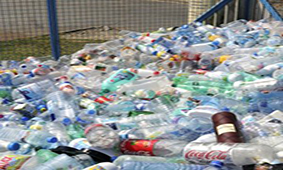
IEA: Rising Use of Plastics in EMs Will Drive Oil Demand

Despite government efforts to cut pollution and carbon emissions from oil and gas, the Paris-based agency said it expected the rapid growth of emerging economies, such as India and China, to propel demand for petrochemical products, Reuters reported.
Petrochemicals that are derived from oil and gas feedstock form the building blocks for products that range from plastic bottles and beauty products to fertilizers and explosives.
Oil demand for transport is expected to slow by 2050 due to the rise of electric vehicles and more-efficient combustion engines, but that would be offset by rising demand for petrochemicals, the IEA said in a report.
“The petrochemical sector is one of the blind spots of the global energy debate and there is no question that it will be the key driver of oil demand growth for many years to come,” IEA Executive Director Fatih Birol said.
Petrochemicals are expected to account for more than a third of global oil demand growth by 2030 and nearly half of demand growth by 2050, according to the world’s energy watchdog.
Global demand for petrochemical feedstock accounted for 12 million barrels per day, or roughly 12% of total demand for oil in 2017. The figure is forecast to grow to almost 18 million bpd in 2050.
Most demand growth will take place in the Middle East and China, where big petrochemical plants are being built.
Oil companies such as Exxon Mobil and Royal Dutch Shell plan to invest in new petrochemical plants in the coming decades, betting on the rising demand for plastics in emerging economies.


Trump weighs using $2 billion in CHIPS Act funding for critical minerals

Codelco cuts 2025 copper forecast after El Teniente mine collapse

Electra converts debt, launches $30M raise to jumpstart stalled cobalt refinery

Abcourt readies Sleeping Giant mill to pour first gold since 2014

Barrick’s Reko Diq in line for $410M ADB backing

Nevada army depot to serve as base for first US strategic minerals stockpile

Tailings could meet much of US critical mineral demand – study

Viridis unveils 200Mt initial reserve for Brazil rare earth project

SQM boosts lithium supply plans as prices flick higher

Energy Fuels soars on Vulcan Elements partnership

Northern Dynasty sticks to proposal in battle to lift Pebble mine veto

Giustra-backed mining firm teams up with informal miners in Colombia

Critical Metals signs agreement to supply rare earth to US government-funded facility

China extends rare earth controls to imported material

Galan Lithium proceeds with $13M financing for Argentina project

Silver price touches $39 as market weighs rate cut outlook

First Quantum drops plan to sell stakes in Zambia copper mines

Ivanhoe advances Kamoa dewatering plan, plans forecasts

Texas factory gives Chinese copper firm an edge in tariff war

Energy Fuels soars on Vulcan Elements partnership

Northern Dynasty sticks to proposal in battle to lift Pebble mine veto

Giustra-backed mining firm teams up with informal miners in Colombia

Critical Metals signs agreement to supply rare earth to US government-funded facility

China extends rare earth controls to imported material

Galan Lithium proceeds with $13M financing for Argentina project

Silver price touches $39 as market weighs rate cut outlook

First Quantum drops plan to sell stakes in Zambia copper mines

Ivanhoe advances Kamoa dewatering plan, plans forecasts

















